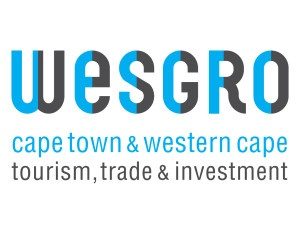 Releasing its annual review yesterday, Wesgro said it had secured 10 investment projects valued at more than R2 billion last year, exceeding its target of R1.7bn and creating 681 new jobs in the Cape.
Releasing its annual review yesterday, Wesgro said it had secured 10 investment projects valued at more than R2 billion last year, exceeding its target of R1.7bn and creating 681 new jobs in the Cape.
In the agribusiness sector, three investment projects worth R315 million had helped create over 200 jobs and grown the Western Cape’s industrial base.
The largest investment deal secured in the past year was for a renewable energy project in Caledon.
Chief executive Tim Harris said the Western Cape was not only helping to raise South Africa’s growth rate, but the unemployment rate was also helping to lower the national average.
Wesgro is funded jointly by the City of Cape Town and the provincial government to boost tourism, trade and investment in the province.
“The logic for an economic promotion agency for the Cape is as strong today as it was when Wesgro was founded more than three decades ago,” said Harris.
For the first time, the agency had also secured “modest” private funding for its promotion work and hoped to increase this in the coming year.
Wesgro would also be engaging with other major municipalities in the province such as Stellenbosch, to discuss ways of better promoting the Cape as a tourism and an investment destination with export business opportunities.
“Over time we are hoping to diversify Wesgro’s revenue from other municipal sources but also from the private sector to say how business can support the economic promotion efforts,” said Harris.
Mayor Patricia de Lille pointed out while Cape Town was already a compelling international brand, it could not rest on its laurels.
“Making the case for the investment into our local economy, no matter how attractive our pitch is, is done in the context of rival pitches from all over the world,” she said.
De Lille pledged to reduce regulatory red tape where possible to reduce the cost of doing business in the city.
She will join Wesgro and MEC for Economic Opportunities Alan Winde on a trip to Los Angeles next month to woo Silicon Valley to invest in the Cape.
Winde said the province had to start embracing the role technology will play in the future.
“My biggest fear is that the Gini co-efficient is going to get worse and not better,” he said. “We need to understand the risk of the fast changes that are taking place across our region and whether we can embrace it.”
Wesgro said although tourism continued to be a major drawcard for the city and the province, visa regulations introduced last year had affected visitor numbers.
The Middle East had become a major source market for tourism and for export over the past year.
Wesgro had facilitated the growth of more than 400 000 additional passenger seats to the city since July last year to help the province reach the 10 million annual visitor number for the first time. It had also helped secure five new international routes and four route expansions. Turkish Airlines had also reintroduced a direct flight to Cape Town.
Wesgro said the agency would meet 25 airlines in efforts to increase flights to Cape Town. Today the Wesgro team travels to China to receive the Routes 2016 Marketing Award. It’s also in the running for the global award.
Conferences had also helped to contribute greatly to the local economy by generating R374m in the past year.
Cape Town had hosted three times as many conferences than Joburg last year.
Wesgro also facilitated 17 new conference bids worth R185m.
